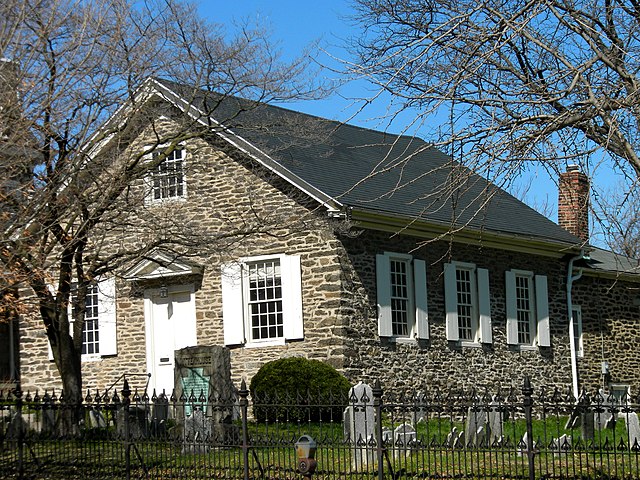The Russian Mennonites are a group of Mennonites who are the descendants of Dutch and North German Anabaptists who settled in the Vistula delta in West Prussia for about 250 years and established colonies in the Russian Empire beginning in 1789. Since the late 19th century, many of them have emigrated to countries which are located throughout the Western Hemisphere. The rest of them were forcibly relocated, so very few of their descendants currently live in the locations of the original colonies. Russian Mennonites are traditionally multilingual but Plautdietsch is their first language as well as their lingua franca. In 2014, there were several hundred thousand Russian Mennonites: about 200,000 live in Germany, 74,122 live in Mexico, 150,000 in Bolivia, 40,000 live in Paraguay, 10,000 live in Belize, tens of thousands of them live in Canada and the US, and a few thousand live in Argentina, Uruguay, and Brazil.
Mennonite family in Campeche, Mexico
Former Mennonite Church in Gdańsk, Poland
Alexanderwohl Mennonite Church near Goessel, Kansas
Mennonites on New River, Belize
Mennonites are a group of Anabaptist Christian communities tracing their roots to the epoch of the Radical Reformation. The name Mennonites is derived from the cleric Menno Simons (1496–1561) of Friesland, part of the Holy Roman Empire, present day Netherlands. Menno Simons became a prominent leader within the wider Anabaptist movement and was a contemporary of Martin Luther (1483–1546) and Philip Melanchthon (1497-1560). Through his writings about the Reformation Simons articulated and formalized the teachings of earlier Swiss Anabaptist founders as well as early teachings of the Mennonites founded on the belief in both the mission and ministry of Jesus. Formal Mennonite beliefs were codified in the Dordrecht Confession of Faith (1632), which affirmed "the baptism of believers only, the washing of the feet as a symbol of servanthood, church discipline, the shunning of the excommunicated, the non-swearing of oaths, marriage within the same church", nonresistance, and in general, more emphasis on "true Christianity" involving "being Christian and obeying Christ" as they interpret it from the Holy Bible.

An Evangelical Mennonite Church in Altkirch
Praise team at The Meeting Place in Winnipeg, Canadian Conference of Mennonite Brethren Churches
Old Order Mennonite horse and carriage
Germantown Mennonite Meetinghouse, built 1770








